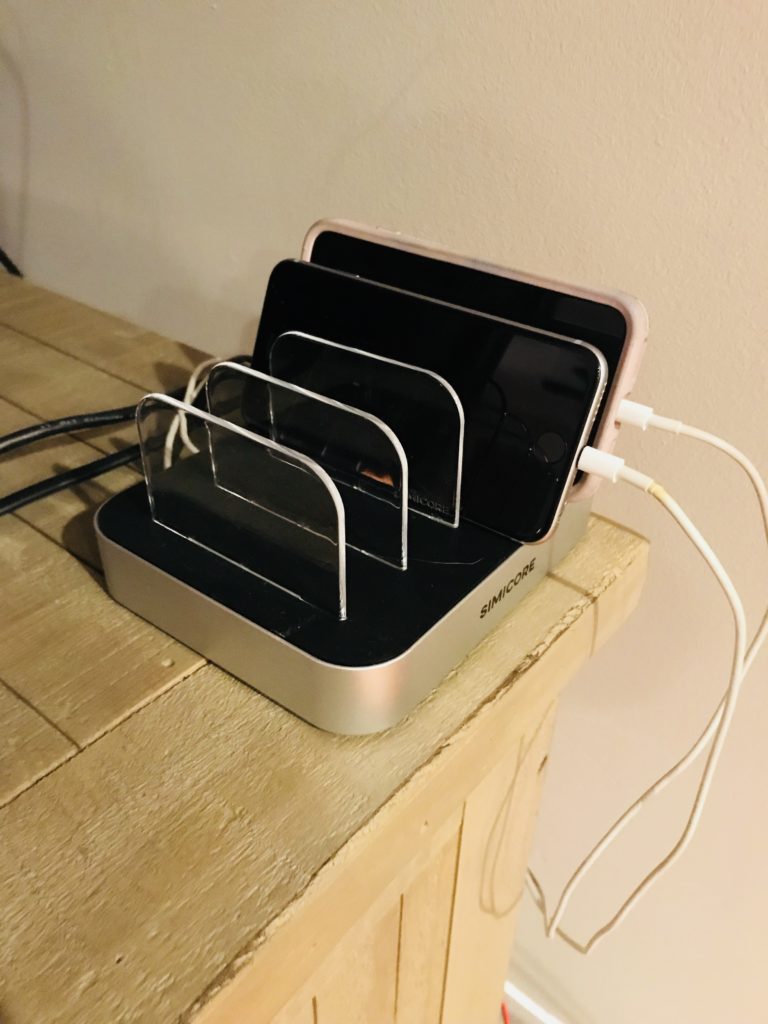Is it your fault? (or theirs)
I am in my second year of teaching confirmation to 8th graders at my church in Mount Pleasant, SC. This past weekend was spent on a group retreat at Camp St. Christopher on Seabrook Island. Although there wasn’t a “no phone” rule, there was no wifi and the cell service was not reliable, especially in the cabins on the beach.
This “retreat” away from their daily lives to focus on their faith and relationship with God had another added benefit: being out of touch.
Throughout my conversations with these young people, I had the opportunity to talk about everything, from relationships to school to technology. We laughed, listened to music, played games, walked on the beach, and without even realizing it, disconnected from the real world for 36 hours. I had several kids tell me what a relief it was to not have to answer every Snapchat message or keep up with a text stream or take 25 pictures just to get the perfect one to post to Instagram.
If you have a middle or high school aged kid with a phone, you understand this – even if you don’t have kids, you get this.
We live in a world that is connected 24 hours a day, 7 days a week.
And without even realizing it, we are bestowing a generation with the inability to turn their brains off – when they need it the most! (Learn more about all that here)
So who’s fault is it?
Can we really blame the kids if we aren’t doing anything to monitor their screentime? If we are allowing them 24 hour access to the world, should we expect a different outcome?
I totally get it. I’ve got 2 of my own (15 and 13) that have mastered the art of negotiation. It’s a heck of a lot easier to give in to the incessant request for 10 more minutes than it is to fight with them. But y’all, we have to step up and help these kids develop self-regulation. It won’t happen overnight. But with consistent practice (read: years), we can tame this monster! (you didn’t learn to look both ways crossing the street at 2 – time, people, time!)
Here’s are 5 things you can do today:
- Docking Station: The easiest way to control screentime is to have a docking station in a common area away from bedrooms. Before kids go to sleep, phones or tablets are placed in this area for charging. No excuses. No exceptions. (alarm clocks are inexpensive) – you’re the parent, duh!

- Give Kids an Out: By having this docking station, you eliminate their need to feel like they must respond to every snap or text or comment. They can blame you when their friends complain that they didn’t get back in touch with them immediately. They can blame you when they weren’t brought into 7th grade drama over a misinterpreted Instagram comment.
- Give Them the Okay Not to Respond Immediately: Turning OFF notifications is the easiest way to avoid the trap of “I have to respond now” (vibration alerts, too). If you ODR (open don’t respond) a Snapchat, you’re immediately flagged by the sender of said snap.

Encouraging them to not respond immediately only works if you remove the device on a regular basis; 24/7 access and thinking they will self-regulate will.not.work. It’s not instinctive for kids. (we have to teach them this stuff just like we teach them to brush their teeth every night)
- They Are Watching You: Oh yeah, this one is a biggie, especially for me since I work on.my.phone in social media for a job. Ouch! Case in point: 15 month old picks up the remote control and points it at the television … did child instinctively know that? Ummm, no. They’ve spent hours watching us stare at the tv with that stick in our hands. The good, the bad, and the ugly – somebody’s watching you!
- Talk to Them: Tweens and teens can be moody and scary and unfriendly. But try this? Ask them about something in their world. Everyday. (yes, everyday) – maybe it’s the Fortnite mobile app or the new layout on Snapchat or the new spring line of Vans. Get in their world and watch them light up. This conversation will make it easier to talk about the difficult stuff later on – don’t bury that head in the sand, they need you now more than ever! (yikes – middle school!) If you’re reading this and have little ones, the earlier you start this, the better. For everyone, it becomes a part of their daily routine.
Okay, that’s enough for now. I know I don’t like long lists.
This is new territory. There is not a comprehensive technology book (that keeps up with everything) nor will there ever be since it changes so rapidly.
We have to stick together and share what’s working or not working with our kids in this space.
Please join our iParent Facebook Group to talk about this and other issues!
Hang in there friends!
Jennifer


